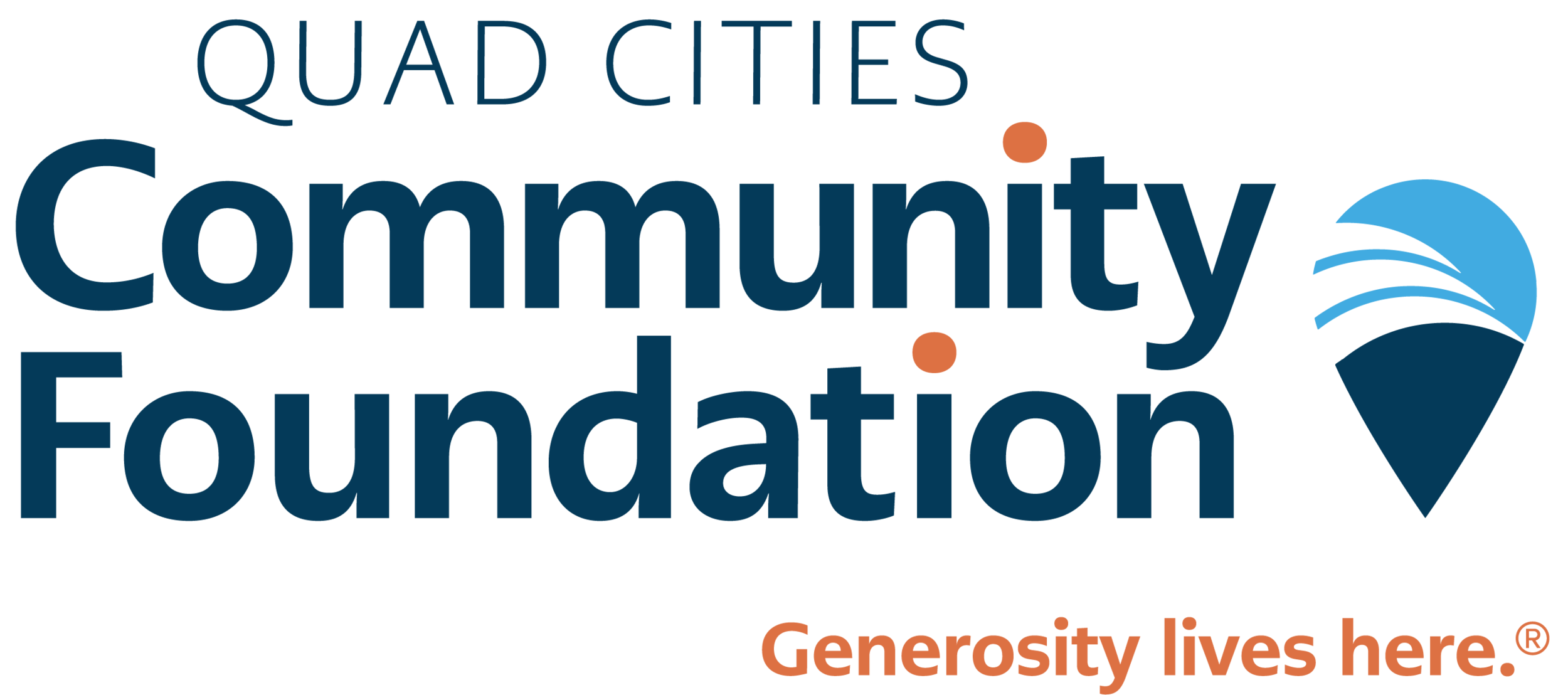3 questions to get your family and friends talking about generosity around the holiday table
The holidays are a wonderful time to gather with family and friends to share fond memories, make up for lost time, and eat plenty of good food. At the Quad Cities Community Foundation, we believe the holidays can also be the perfect time to have deeply meaningful conversations about generosity with your loved ones.
Take the time to reflect together on the importance of giving back, and you’re bound to learn something new about each other—and even yourself. But how do you do it? We’ve got three “starter” questions to help make generosity the centerpiece of your holiday table.
1. Who taught you to be generous?
Generosity is a skill, and everyone learns it somewhere. Whether it was the example of a neighbor who brought your family a warm meal during a tough time, or a strong sentiment instilled by a wise grandparent, the lesson of generosity is one that stays with us as we grow and broaden our experience in the world.
When you get your family members talking about who taught them to be generous, you inspire a conversation about the important people in our lives and the values that transcend the everyday. These are important legacies to recognize, and they provide beautiful models of how our generous actions—even ones we may think are small—reverberate through time and space.
Download Your Generosity Guidebook!
Want to keep the conversation going? Our brand-new introduction to charitable giving, Your Generosity Guidebook, is chock-full of questions just like these and fun exercises to help you understand your relationship to giving. Great for individuals as well as couples and families, it’s also got tips for taking the next step on your philanthropic journey. Download the free guide here!
2. What gifts have you made in the past that gave you the most joy or satisfaction?
Even if you don’t call yourself a philanthropist, you’ve given gifts of time, talent, or treasure that have had an impact on an organization or another person. Reflecting on those gifts is a way to celebrate the generosity of every person at the table and acknowledge one of the most important truths about giving: it feels good!
See if you can dig down to articulate what it was about those gifts that brought you joy or satisfaction. Was it the knowledge that you made a difference to a cause you care about? The feeling of translating your values into action? A relationship your gift sparked or strengthened? Giving can feel good for all kinds of reasons, and being able to pinpoint what felt good for you means you can recreate that good feeling again in the future.
3. What do you want to change or preserve in your community or the world?
Building on our first two questions, this question asks everyone at the table to look forward to what they could do by building on their generosity. Are they more motivated by the gaps they see—unmet needs or social injustices—or by the good work already being done?
Discussing questions like these does more than help identify a path for future giving. It can also deepen your family’s understanding of what moves and motivates each person present: their values, their passions, and their hopes. Who could ask for a better way to spend this time of togetherness? Just remember: there are no wrong answers—only memorable conversations.

